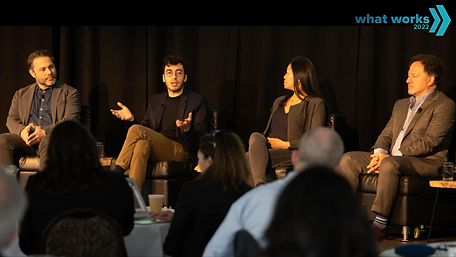
Highlights for the future of democracy sessions












Dialogue:
The threat of misinformation to social progress
Justin Hendrix
Co-founder and CEO, Tech Policy Press
Kourosh Houshmand,
Alum, Reach Alliance
Minh-Thu Pham
Co-founder, New American Voices
Zachary Karabell
Founder, The Progress Network

Misinformation is the use of information you know to be false for a purpose. What is the threat of misinformation? Disinformation propaganda is not new, what is different is the efficiency of these misinformation platforms. They can target specific populations.
How does misinformation fit in the context of narratives? We are in a moment where there is hypersensitivity within trust, there is placement of non intentional misinformation in that narrative. When you bring to the table the issue of digital communications, not just social media, have changed the way species interact. Do we have the science to understand digital connectivity, the pace of our communication, the pace of interactions have changed the way our politics work, how nations and families interact?
Fireside chat:
The decline of rights and inclusive societies
Mimi Marziani
The Texas Civil Rights Project
Kelsey Mulcahy
Public Policy Research Manager, Data for Good, Meta
Jaime García,
Social Progress Imperative Regional Director, INCAE
Business School

The Social Progress Index measures the capabilities we have to reach our full potential, as individuals and as a society. It measures Personal Rights, Inclusiveness, Personal Freedom and Choice and Access to Advanced Education.
Everything is connected, we can't have social progress and economic growth if we fail in basic wellness, in basic medical care, and if we fail in personal rights.
If we see the data of the Social Progress Index in the last 10 years, we see great advances in access to information and communications, in health and wellness, in water and sanitation, all those components that depend on infrastructure and income are increasing. But those components that are based in institutional arrangements to social arrangements, we are going backwards.